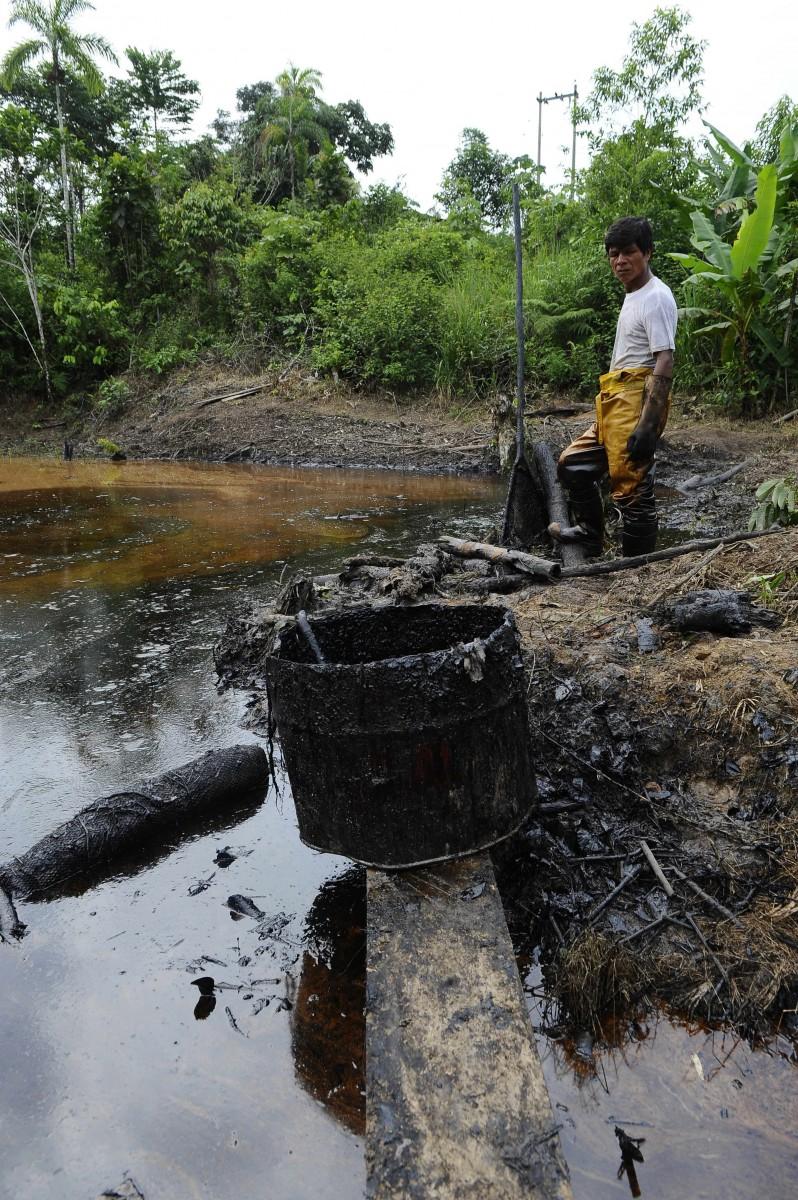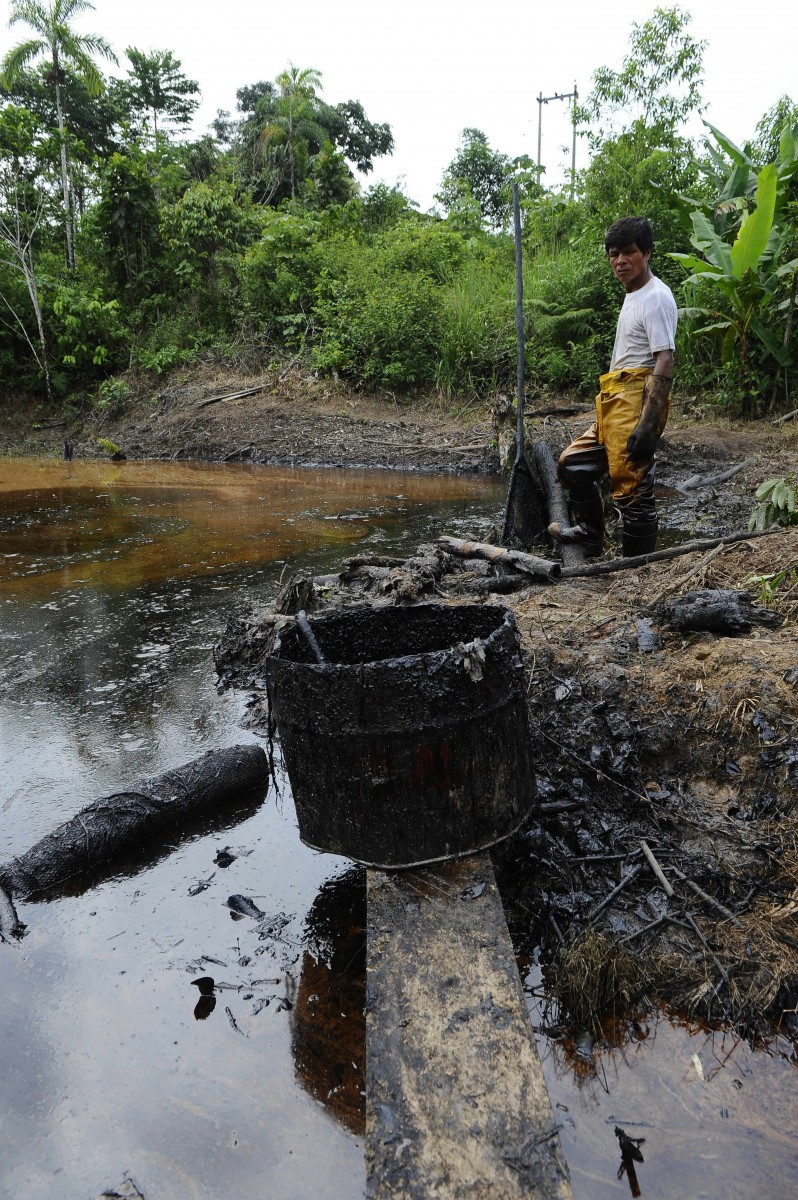The Canadian lawyer representing 30,000 Ecuadorians in a long-running lawsuit against U.S. oil giant Chevron says he thinks the case will be won within a year.
The suit, filed in the Superior Court of Justice in Ontario on May 30, aims to enforce a ruling by an Ecuadorean court last year that Chevron must pay $18.2 billion in damages.
Claiming that it is not responsible and that the court process was corrupt, Chevron has refused to pay.
Alan Lenczner, the lawyer representing the plaintiffs from the Amazonian city of Lago Agrio and surrounding area, says Chevron will have to file a response to the suit within 50 days, and after that he expects the case, which has dragged on for almost two decades, to soon be settled.
“I think this should be done with. The idea behind all of the recognition of foreign judgements is that it’s an efficient process, so I see an end in sight within about a year’s time,” he said in an interview.
An Ecuadorean court granted the $18.2 billion judgment in February 2011 against Chevron. The suit charged the company’s subsidiary Texaco Petroleum Co. with polluting waterways and parts of the Amazon rainforest and damaging the health of local residents.
The judgment was upheld by the Ecuadorian Appeals Court in January 2012.
The Amazon villagers claim high rates of cancer, spontaneous miscarriages, and oil-related diseases are due to environmental damage from nearly 30 years of Texaco drilling in the area.
The plaintiffs allege that Texaco abandoned 916 oil-polluted waste pits in the area, which seeped oil into the water systems. They say less than 200 of the pits were cleaned up by the time Texaco left Ecuador.
“There are very, very high rates of cancer and other malformation, because they’ve been drinking the water, they’ve been swimming in some of this stuff, they do their washing in the rivers which have got oil in them, they drink the stuff. So they’ve had every kind of imaginable ailment, mainly high rates of cancer,” said Lenczner.
Ecuador Judgement ‘illegitimate’
Chevron alleges the Ecuadorean trial and subsequent judgement was corrupt, and has vowed to vigorously defend against any enforcement action.
“The Ecuador judgment is a product of bribery, fraud, and it is illegitimate. The company does not believe that the Ecuador judgment is enforceable in any court that observes the rule of law,” Chevron said in a statement responding to the Canada suit.
Chevron has also filed arbitration against the plaintiff’s controversial U.S. lawyer, Steven Donziger, with charges of extortion and fraud.
Lenczner says many of these charges were already overruled in the Ecuadorean judgement, so won’t play a significant factor in a Canadian court.
He adds that Chevron initially insisted that the case be moved from the U.S. to Ecuador, and is claiming fraud only because it lost the case.
The lawsuit was originally filed against Texaco in 1993 at a federal court in New York, but was dismissed after Chevron’s lawyers argued that the case should be heard in Ecuador. Subsequently, the lawsuit was re-filed in Ecuador in 2003.
“Chevron argued that the Ecuadorian courts were very good and could take this thing on and deal with this and that they were good courts. Now of course, having lost, they’re saying that the courts are biased and corrupt and everything else,” said Lenczner.
The plaintiffs chose to file in Canada because Chevron currently has no assets in Ecuador. It has several in Canada, including investments in the Hibernia project in the North Atlantic Ocean, Canada’s largest offshore drilling project.
Canada’s court system also has a solid reputation and is known for recognizing international judgements. In addition, Canada has a law that allows interest to run on a foreign judgment during the enforcement process, potentially adding a significant amount to the judgment against the oil giant.
Texaco started drilling in Ecuador in the 1960s in partnership with state-owned oil company Petroecuador. Texaco left Ecuador in 1992 and the company was acquired by Chevron in 2001.
Chevron has argued that before Texaco left Ecuador, they spent about $40 million to clean up the oilfields and were given certification from the Ecuadorian government that it had reclaimed its share of environmental damage from operations in the country.
The company also argues that since Petroecuador, which still operates in the area, owned a majority 62.5 percent of the oil consortium with Texaco, they should be responsible for the majority of the cleanup.
However, the plaintiffs claim that at the time, Texaco was the primary operator and producer at the sites, and is therefore responsible for the damage.
Shareholders Want a Settlement
On May 28, Chevron was dealt another blow when it received a letter from 40 of its shareholders, which invested a total of $580 billion in the company, demanding that Chevron consider a settlement with the Ecuadorians.
“We urge Chevron to use the occasion of this most recent legal setback to take a fresh look at its options to address Texaco’s legacy in the Ecuadorian rainforest,” reads the letter.
“Despite management’s continual assertion that it intends to challenge the judgment at every opportunity, its financial exposure has only grown over time and its options to evade the $18 billion judgment have greatly narrowed in recent months.”
The letter adds that Chevron has suffered “significant reputational damage from its attempts to defend Texaco’s record in Ecuador. The current attempts to undo the Ecuadorian court’s verdict only keeps the case in the public eye and further damages Chevron’s reputation.”
Pablo Fajardo, a lead lawyer for the Ecuadorians, said his clients are intent on collecting the entire judgment.
“The time for delay is over,” he said. “For decades Chevron refused to address the contamination that has devastated our ancestral lands. While Chevron might think it can ignore court orders in Ecuador, it will be impossible to ignore a court order in Canada where a court may seize the company’s assets if necessary to secure payment.”
Fajardo, who grew up in poverty working in Ecuador’s oil fields, put himself through law school specifically to hold Chevron accountable for the environmental disaster.
“We plan to exercise our legal right to collect every penny of the legitimate judgment from Ecuador, even if we have to drag Chevron kicking and screaming into courts around the world,” he said.






